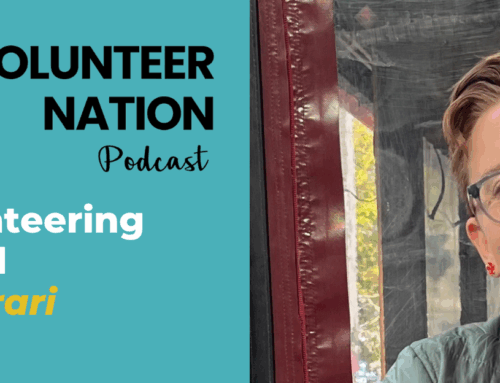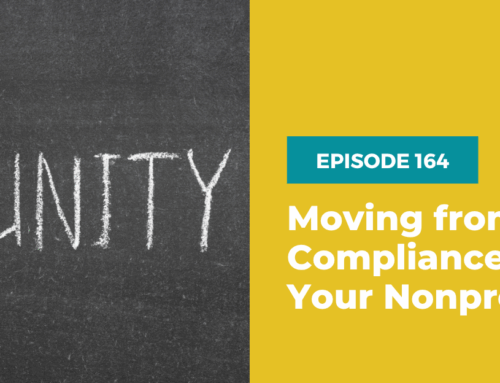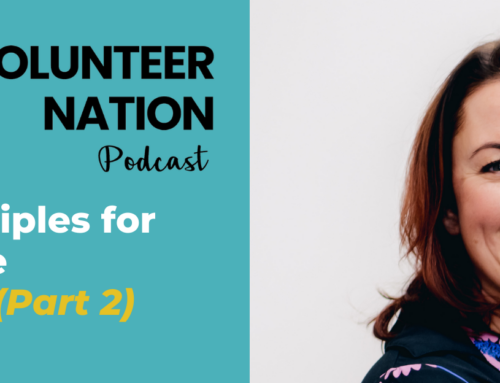
How to Hire a High-Quality Volunteer Management Consultant
Hiring a volunteer management consultant can be a smart investment for your nonprofit, provided you find the right person with a solid mix of expertise, wisdom, credibility, and people skills.
Moreover, because consultants spend part of their time reviewing emerging research and best practices, they can bring fresh insights to the challenges your organization faces. Also, because they have solved similar problems before, they can arrive at solutions more quickly than you may be able to.
7 Things to Look For in an Expert Volunteer Management Consultant
When vetting consultants for your next project, use the following seven criteria to pinpoint the best person for the job.
1) They Have Deep Practical Experience
Although we can learn a lot from books when it comes to volunteer engagement some of the most relevant leadership skills and lessons learned come from direct experience. Seek out professionals who have worked with volunteers directly and have wisdom learned through successes (and failures) throughout their careers.
2) They Have Wide Practical Experience
Because volunteer engagement will no doubt touch every part of your organization, it helps to hire a consultant that also has multidisciplinary experience in a variety of nonprofit roles.
Expertise in program development and start-up, budgeting, hiring, direct service, and partnership development are all transferable skills that help build a stronger volunteer engagement strategy. High-quality consultants don’t rest on their laurels either. They stay up-to-date on emerging research and best practices.
3) They Start the Conversation by Asking About You!
Each organization has a unique set of challenges and contexts within which they work. When you speak with prospective consultants, they should spend most of your first meeting or call getting to know your needs through “diagnostic listening.”
In this exploratory phase, you’ll know this is happening because an expert consultant will repeat back what they think they hear from you to check the accuracy of their assumptions and offer early insights.
While they may not arrive at a full solution on the spot, they have begun to identify your key barriers and what you may be missing. Then, they can base their proposed scope of work on a thorough understanding of your needs and propose a journey of transformation.
4) They Include Change Management in Their Project Proposals & Plans
Staff buy-in, from across the organization, is critical to most volunteer engagement strategies. Unfortunately, paid staff reluctance to involving volunteers and resistance to change from volunteers and staff alike is all too common.
If your project will involve changes in policies, procedures, or planning, it will have a ripple effect on your team. If the consultant does not employ change management strategies, your project may fall flat and your investment will be wasted.
5) They Have a Track Record of On Time, On Budget Projects
There’s nothing that erodes staff confidence in a consultant’s process or recommendations more than when project tasks drag on and cost more than originally estimated. Check references and see how each project progressed and was completed. Ask about any budget overages or timeline extensions.
6) They Can Work Within Your Budget
Consulting projects can be notoriously complex. They can also be quite simple.
Rather than asking consultants to compete on a hidden price (rarely the best way to evaluate talent), be straightforward about your budget (or budget range) and ask them what they can do within that limit. That way, you can easily compare apples to apples and see what each prospective bidder can offer within your established parameters.
7) They Value Diversity
Expert consultants value a diversity of opinions and experiences because they know that this diversity will strengthen your process and results. Moreover, if differences in race, gender identify, language, geographical, disability, or socioeconomic status are discounted, your project results can be jeopardized.
Consultants also have an ethical responsibility to include others, solicit feedback on their own performance, and to alert organizations about considerations of diversity that may have an impact on the success of your volunteer engagement.
By taking the time to consider the skills, values, and approach of a possible volunteer management Consultant — and taking the time to thoroughly expand your needs and budget limitations — you’ll be more likely to realize sustainable results and impact through your next consulting engagement.
Looking for Expert Help Right Now?
At Tobi Johnson & Associates, we offer a wide range of expert volunteer management consulting and training services, based on decades of on-the-ground experience in the field. See a full list of consulting services here — https://tobijohnson.com/consulting/.
Looking for a keytnote or workshop presenter for your next big event, or want to live stream training to your local group? Check out our suggested training topics and fees here — https://tobijohnson.com/speaking/.
Want to have a quick, no-obligation chat about your project? Contact Tobi at wecare@volpro.net or call 206.799.9038.







Leave A Comment